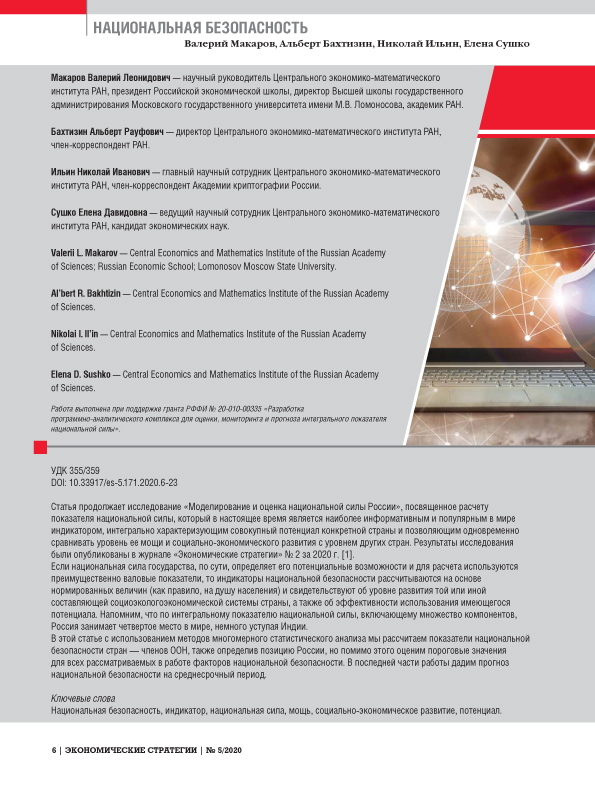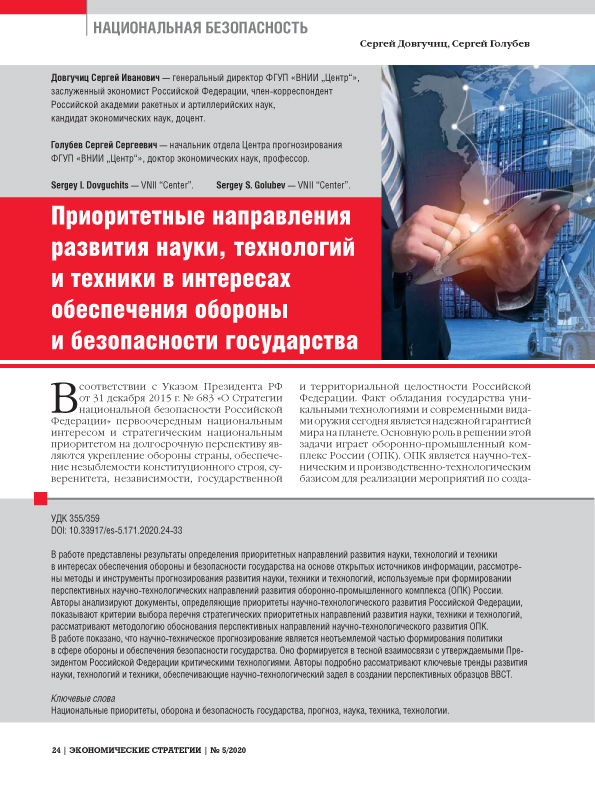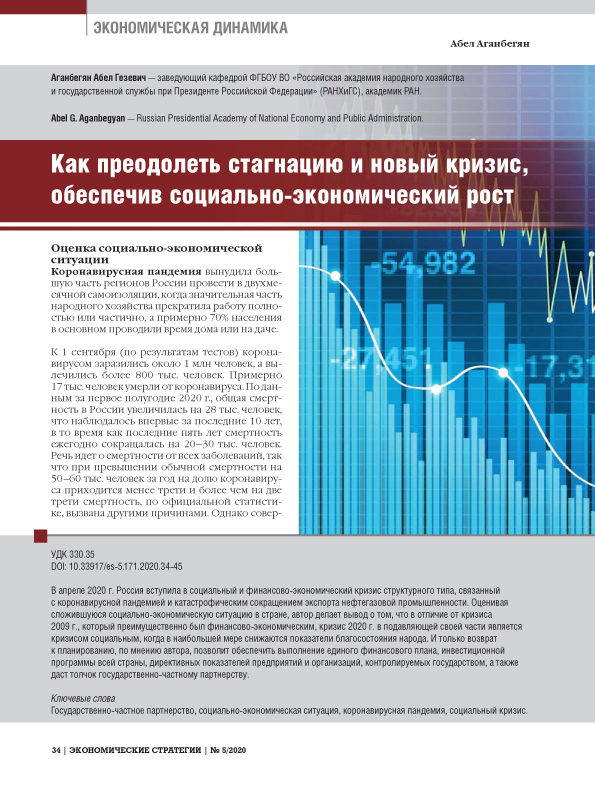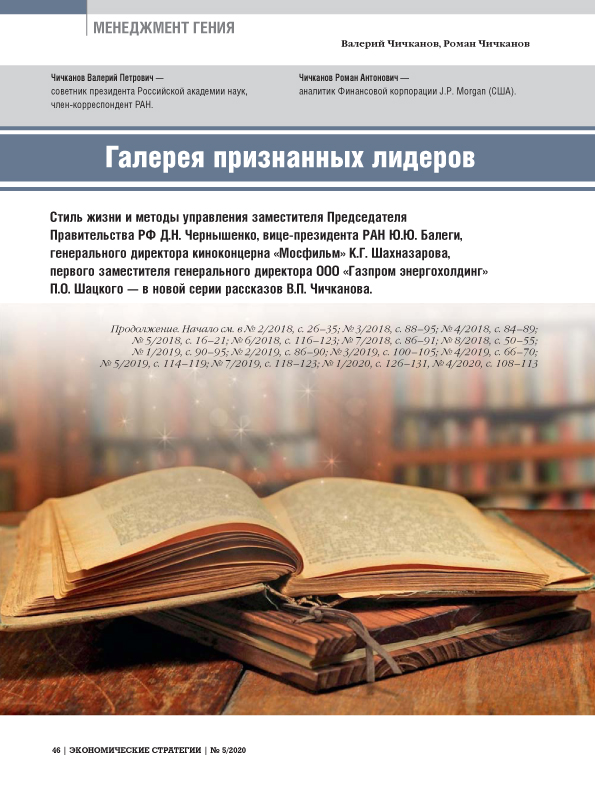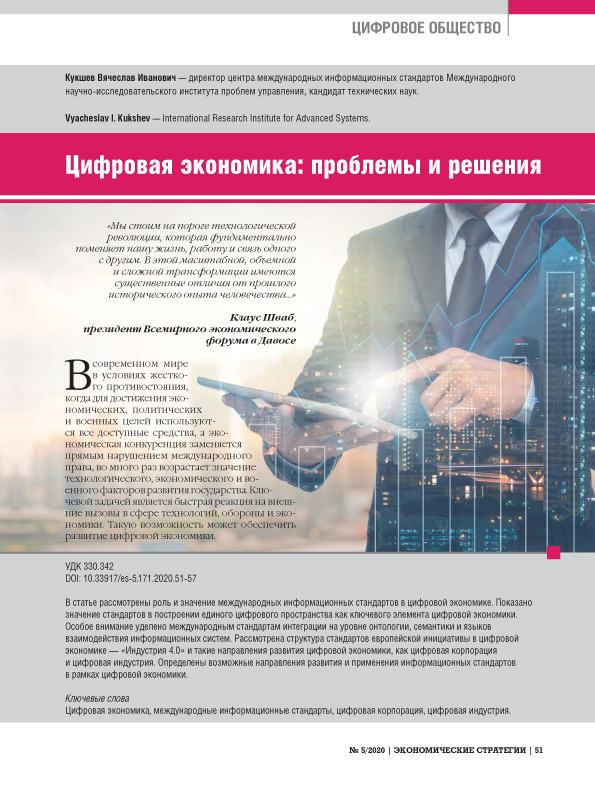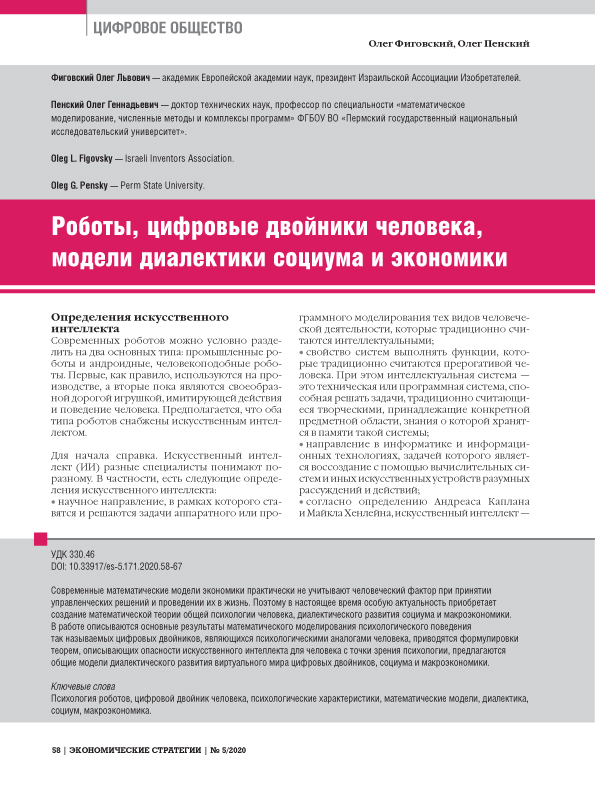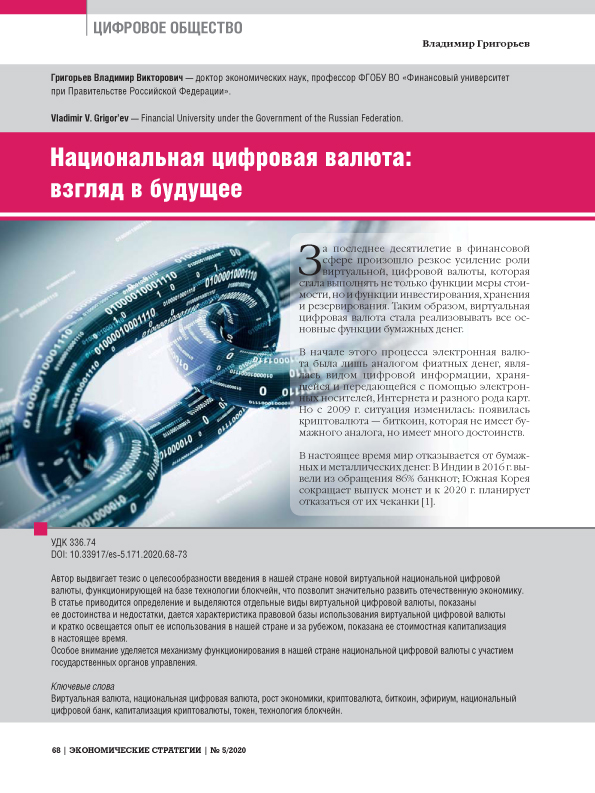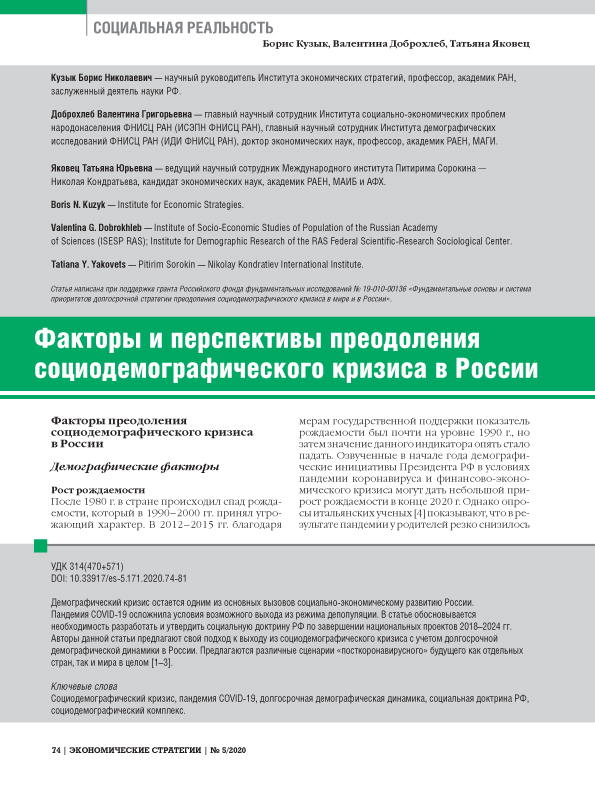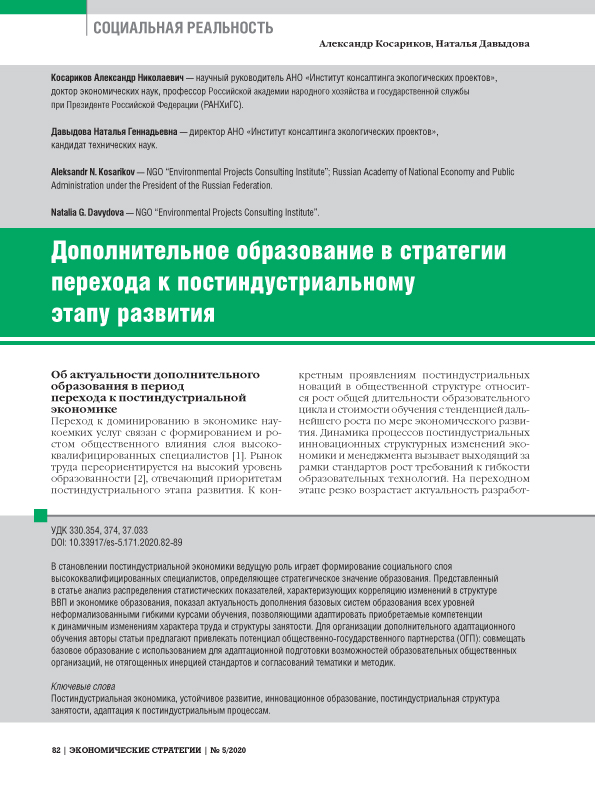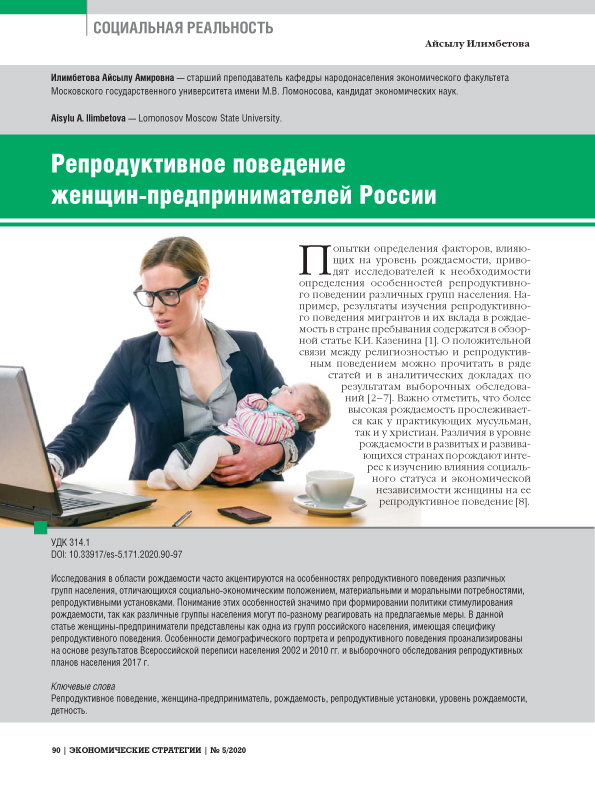National Security of Russia
DOI: 10.33917/es-5.171.2020.6-23
The article is continuing the research “Modelling and Assessment of Russia’s National Power”, dedicated to calculating the index of national power, which is currently the most informative and popular indicator in the world that integrally characterizes the aggregate potential of a particular country and allows at the same time to compare the level of its power and socio-economic development with the other countries’ level. The research results were published in the “Economic Strategies” magazine No. 2 for 2020. [1].
If the national power of the state, in fact, determines its potential capabilities and mainly gross indicators are used for the
calculation, then the national security indicators are calculated on the basis of normalized values (as a rule, per capita) and witness the development level of one or another component of the country’s socio-ecologic and economic system, as well as efficiency of using the existing potential. It should be reminded that in terms of the National Integral Strength Index, which includes many components, Russia ranks fourth in the world, slightly behind India. In this article, using the methods of multivariate statistical analysis, we’ll calculate the national security indicators of the UN member states, also defining the position of Russia, but in addition, we’ll also estimate the threshold values for all the factors of national security considered in the work. In the last part of the paper, we’ll give a medium-term forecast of national security



